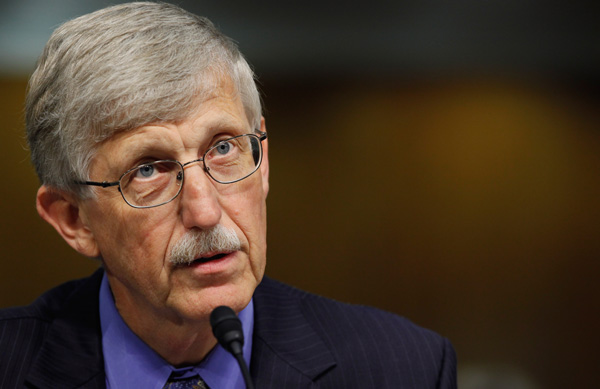Leaders from the National Institutes of Health (NIH) testified on March 4 before the House Appropriations Subcommittee on Labor, Health and Human Services, Education, and Related Agencies (Labor-HHS) to provide updates on the novel coronavirus (COVID-19) and testify on the president’s fiscal year (FY) 2021 budget proposal.
NIH Director Francis Collins, MD, PhD, and five directors of NIH institutes appeared before committee members to answer questions about the future of medical research and the efforts to combat COVID-19. In addition to other COVID-19 activities on Capitol Hill this week [see related story], many members used their time to inquire about the federal preparedness and response to the virus.

National Institute of Allergy and Infectious Diseases Director Anthony Fauci, MD, noted that the research on basic virology, as well as the rapid sequencing of COVID-19, comes from NIH and its grantees. Dr. Fauci anticipates a vaccine candidate in as little as six weeks, which would be the fastest-ever time from sequencing a viral genome to a vaccine trial. Dr. Fauci also emphasized the importance of more widespread, proactive testing of symptomatic individuals.
On the FY 2021 federal budget proposal, the hearing followed last week’s session with Health and Human Services Secretary Alex Azar, JD, [see Washington Highlights, Feb. 28] with subcommittee Chair Rosa DeLauro (D-Conn.) and Ranking Member Tom Cole (R-Okla.) pointing to the continued bipartisan support for medical research and emphasizing the importance of maintaining a consistent funding growth trajectory for NIH.
Chairwoman DeLauro opened the hearing voicing how proud she is of Congress’ 39% increased investment for NIH over the past five years. Rep. DeLauro said she was disappointed with the FY 2021 budget request of $38.7 billion in FY 2021, a $3 billion or more than 7% cut below the FY 2020 enacted program level [see Washington Highlights, Feb. 14].
“With only a few exceptions, the proposed cuts to NIH would touch every Institute and almost every field of research. Last year, in addition to new funding for several initiatives, we were able to provide a 3.3% increase to each NIH Institute and Center. We need to keep that momentum, not reverse it.”
House Appropriations Committee Chair Nita Lowey (D-N.Y.), in what she described as likely her last NIH hearing before her retirement from Congress, criticized the “disastrous” budget request and added that “every penny” of FY 2020 funding for NIH was worth it.
Ranking Member Cole shared his view that the president’s budget “is an attempt to bring fiscal responsibility to the budget process” but also noted that NIH funding represents a “down payment for a better future” and would be an inappropriate place to cut funding.
In his written testimony, Dr. Collins described advances in gene therapies for various diseases, artificial intelligence, development of a universal flu vaccine, and addressing substance use disorder and addiction. Dr. Collins also highlighted three NIH-funded initiatives deemed “breakthroughs of 2019” by the National Science Foundation: lifesaving progress on Ebola virus; development of foods to treat childhood malnutrition; and a triple drug therapy to treat cystic fibrosis.
Ranking Member Cole also asked Dr. Collins about foreign government influence in research. Dr. Collins stated that NIH relies on foreign investigators, the majority of whom play a positive role in the research enterprise. He added that the NIH is working with the Federal Bureau of Investigation to investigate incidences where researchers are not transparent about their funding sources and affiliations with foreign governments.
Subcommittee members also inquired about a range of other topics, including Alzheimer’s disease, maternal mortality, gene editing, vaping, and the NIH’s work to reduce health disparities. Joining Drs. Collins and Fauci were Diana Bianchi, MD, director of the Eunice Kennedy Shriver National Institute of Child Health and Human Development; Ned Sharpless, MD, director of the National Cancer Institute; Gary Gibbons, MD, director of the National Heart, Lung, and Blood Institute; and Nora Volkow, MD, director of the National Institute on Drug Abuse.